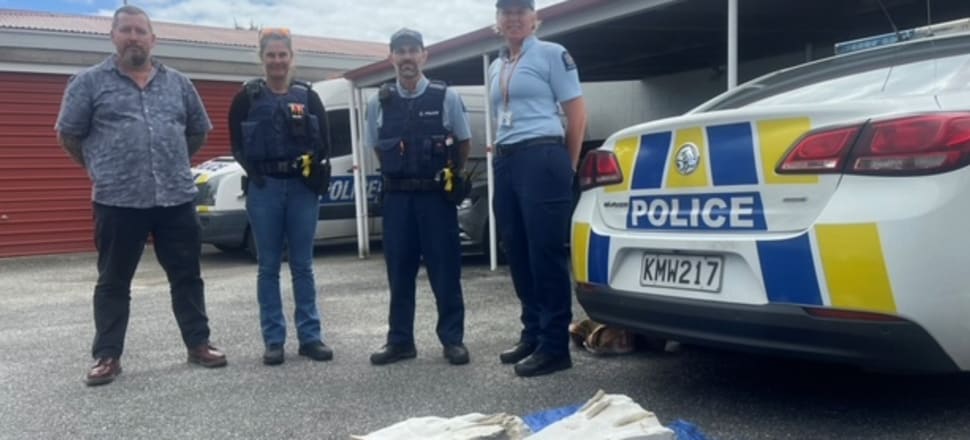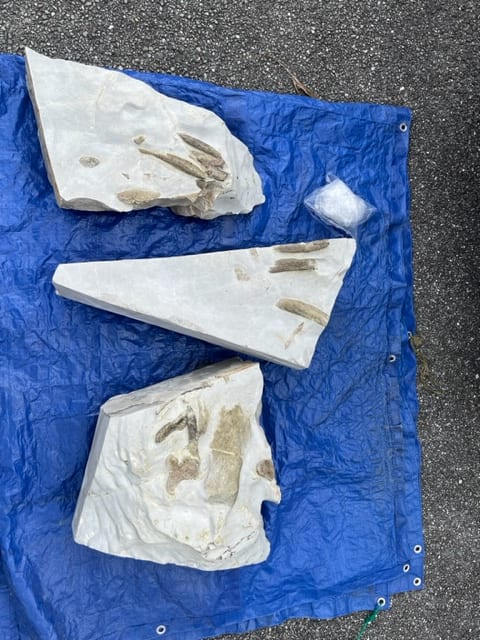
The latest chapter in the removal of a 23-million-year-old whale relic sparks further fury
A Karamea man who tried to stop a collector from hacking a prized fossil from a local riverbed says the man should have nothing to do with its preservation or its return.
Tom Horncastle tried to prevent Greymouth man Harry Jensen from taking the whale fossil last Labour weekend, warning him it was a treasured local landmark.
Jensen has since apologised to the Karamea community and iwi on Facebook.
Describing himself as an “amateur palaeontologist and citizen scientist”, he claims taking the fossil was part of “a larger project to preserve and protect the diverse vertebrate fossil record on the West Coast from the ravages of tides and time”.
He does not say who is running the project and has not responded to a request for details.
“The fossil will be donated to the Karamea museum once it has been prepared and preserved to a standard presentable to the residents … ” Jensen says.
Police photos of the fossil seized from Jensen’s house show it cracked and in three pieces.

“It looks bloody terrible,” Horncastle says.
“It looked good where it was, in the riverbed.
“And as far as ‘restoring’ it goes, he flogged it - he shouldn’t be allowed to have anything to do with it.
“His mate told me he had iwi approval and that was a lie.”
The manawhenua, Ngāti Waewae, confirms it had not approved the fossil removal, which it called vandalism and theft of a taonga.
Happy where it was
The fossil was well preserved in its rock bed for 23 million years and was in no need of rescuing, Horncastle says.
“Jensen’s making out he’s some sort of hero and he’s not. That sort of rock - we have it on our land - crumbles if it dries out.
“It has to be kept moist and where it was it had the tide over it twice a day.”
Jensen has neither been charged with any offence by the police nor received an infringement notice from West Coast Regional Council.
The law allows people to take fossils from the foreshore though they can’t be legally sold without a permit.
And although council rules forbid the use of machinery to remove rock from the marine environment without consent, they were written to stop diggers taking rock from the foreshore.
Jensen’s use of a chainsaw to cut out the fossil was considered fairly minor in terms of the rule.
In his apology, Jensen says he regrets the hurt he caused the Karamea people by taking the fossil and the “negative publicity” for Te Papa and the University of Otago he claims resulted from the national outcry.
A Te Papa spokesperson says the museum has never had any dealings with Jensen and had not suffered any negative publicity that it knew of as a result of his actions.
Made with the support of the Public Interest Journalism Fund








